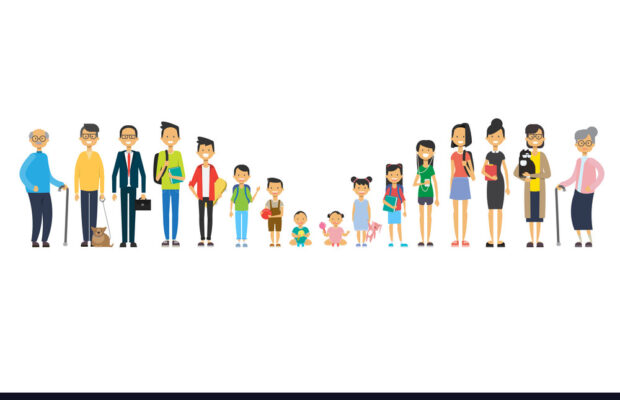Generational assertions overlook contexts of individuality

Older people have always said, “The kids these days…”, and then a biting commentary follows about their behavior or habits of the younger generation, usually negative attributes. Younger people have always said, “Old people don’t know anything”, and of course that can’t be true!
Why do the generations have such disrespect for each other? Where did this gap of understanding between generations come from?
In current times we have a constant flow of Internet memes that joke about negative attributes of each generation, narrowing on stereotypes of each labeled generation. For example, Boomers being terrible with tech, millennials eating too many avocados. These are silly accusations.
Even the magazine Psychology Today published an article about the characteristics of generations, generalizing them as well. Calling the Baby Boomers flower children or Generation-X the lost generation (where did they go?). Millenials are referred to as the narcissistic tech gurus, and last but not least, but maybe the least, Generation-Z, is referred to as The Unknown! Wouldn’t this labeling be considered psychologically damaging? Really, who does all this labeling benefit?
What do sociologists who study groups of people think of this labeling of groups based on birth years?
Sociologist Dr.Froyo from the University of Iowa reflects on the fact that sociologists don’t like generational labels to describe groups of people. Dr.Froyum answered these two questions about why is there such a division, and are the differences real?
1.Why do generations seem to always talk negatively about the generation before them or after them?
2.As a sociologist, do you think that generational labeling is accurate or abstract? Are the characteristics closer to being stereotypes than actual group definition?
“Sociologists don’t really use generational labels a lot because, as you point out in your second question, they are often too abstract to be empirically meaningful. There certainly are common historical and social events that affect groups of people, but there is so much variation within groups that generationality doesn’t really have predictive effects in particularly helpful ways. We could certainly think of the pandemic this way: it is a common social experience that because of our living through it will likely shape our social lives in ways that we have yet to recognize.
Will there be some potential differences in those effects for, say, kids who were in elementary school during the pandemic and people who were middle aged? Sure, but there is so much difference within each age group that other social factors are going to affect how the pandemic plays out even among kids in elementary school (e.g., whether they had a loved one who died from the virus or not). In that case, exposure to someone directly affected/killed by the virus will likely matter more in shaping the child’s life than the abstract experience of being a kid during a pandemic.”
“As for the first question, I see this as the byproduct of political wrangling. (Political here doesn’t necessarily refer to politics, although it could. It refers to the struggle for power.) Generational ‘bashing,’ if you will, happens in particular social interactions, where people are debating about how to allocate some sort of resources (e.g., money related to social policies, social status). It’s gamesmanship: people trying to get others to view people like them as more deserving of resources and esteem. As I point out above, however, the characteristics that define a particular generation and thus who is ‘like them’ are quite ‘fuzzy.’”
Understanding that events affect generation makes sense, and it is logical that events will cause groups of people to behave differently depending on these events. Even so, that is too wide of an assumption according to sociology professor Phillip N. Cohen of the University of Maryland. In an op ed for The Washington Post, Cohen said,”Worse than irrelevant, such baseless categories drive people toward stereotyping and rash character judgment. This is disappointing, because measuring and describing social change is essential, and it can be useful to analyze the historical period in which people were born and raised. People should write books and articles on these topics. But drawing arbitrary lines between birth years and slapping names on them isn’t helping.”
The labels forget that because people experience life differently because of years of difference within the timeline of each generation. There is background as well. What about the difference of experience because you are white, black, immigrant, native, female, male? It is a spectrum of experiences, events and backgrounds. The struggle for remaining relevant and important is real, and a part of why generations put down each other.
So all of us, readers, writers, teachers and students should really think twice before uttering things like “OK, Boomer ‘,’ or “Must be a Millennial thing … .” We need to think about how it erodes our understanding of each other and our understanding of social change and the effect on people.









You must be logged in to post a comment Login